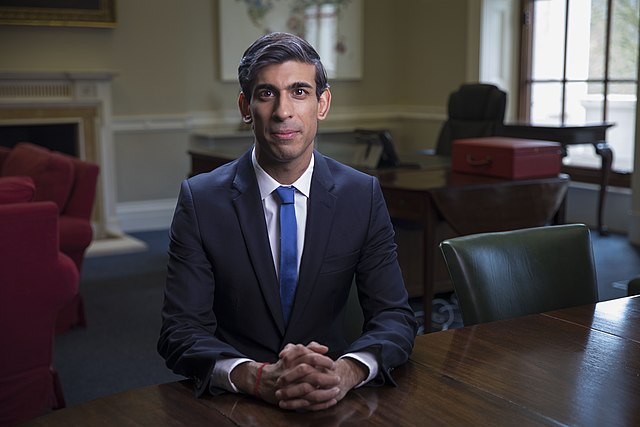While Indians around the world lit fireworks for the Hindu festival Diwali, news of Rishi Sunak stepping into the role of British Prime Minister rose to the forefront of headlines, giving Indians around the world more reason to celebrate.
However, this new change in leadership became a hard pill to swallow for many Brits, who didn’t hesitate to attack Sunak for his immigration status, heritage and skin color.
At age 42, Sunak is not only the youngest Prime Minister in over 200 years, but also the first Hindu and first person of South Indian descent to lead the country. Sunak was born in Southampton to parents who migrated to Britain from East Africa in the 1960s.
As Sunak joined the list of the few and far-between Indian-origin leaders on Oct. 25, racist responses from around the world revealed an appalling political pattern.
Senior Anagha Sudhindra has witnessed the double standard that people of color in politics face. “Britain, and the West comprehensively, present themselves as progressive compared to Asia and the East, yet the ‘Great West’ still pushes these ideas of separation and segregation in offices meant to represent all constituents,” Sudhindra stated.
On the popular British talk radio LBC, a caller’s racist comments took center stage. “Could you imagine me becoming the prime minister of Pakistan or Saudi Arabia? No. Eighty-five percent of England are white English people and they want a prime minister who reflects that. I can’t just go to India and be the Prime Minister there, can I?” the caller remarked.
Although the media has amplified the racist comments of this singular voice, the caller claimed to represent the “average Tory member.” Many couldn’t help but wonder, “Are these truly the sentiments of the general public?”
Racism has long been embedded into the fabric of Britain’s history. Imperial British powers encouraged migrant workers to immigrate to Britain, only to be met with policies such as the “color bar,” which prevented people of color from obtaining jobs, using certain rooms and facilities, competing for British boxing titles or even joining the armed services.
Other laws such as the Coloured Alien Seamen Order of 1925 aimed to limit the influx of “colored alien seamen” to the country. This law was not revoked until 1942 and race-based segregation was not deemed illegal until 1965.
In a country with a dark history of colonialism and flawed immigration policies, it is no surprise that the news of Britain’s first prime minister of color has produced dissenting reactions.
These reactions are occurring more frequently as Sunak is part of a recent trend of Indian-origin leaders who have risen to prominence in the West. Earlier this year, half-Indian and half-Portuguese Antonio Costa was re-elected as the Prime Minister of Portugal. In an uncontested election, Chandrikapersad ‘Chan’ Santokhi became the ninth President of Suriname in 2020. Most notably, US vice president Kamala Harris became the first female vice president and the first person of color to serve in that office.
Born in California to parents who emigrated from India and Jamaica, Harris faced similar reactions when she entered office. The day after the Biden-Pence Vice Presidential Debate, former President Donald Trump labeled Harris as “totally unlikeable,” “nasty” and “a monster.” Fox News commentator Tucker Carlson made similar remarks, saying Harris was “not from this country.”
These types of reactions are not new—racism and sexism targeting Harris have been running rampant since President Joe Biden announced Harris as his running mate. Former First Lady Michelle Obama faced similar opposition throughout her term as well.
Negative attitudes towards trailblazing leaders like Harris and Obama have once again risen to the surface with the recent news of Sunak becoming the new British Prime Minister. Sunak was born in Britain, attended one of the country’s most prestigious public schools and served as a chancellor for the British government.
But in the eyes of ignorant Brits and everyone else living in a world of identity politics, Sunak can never be British enough.









